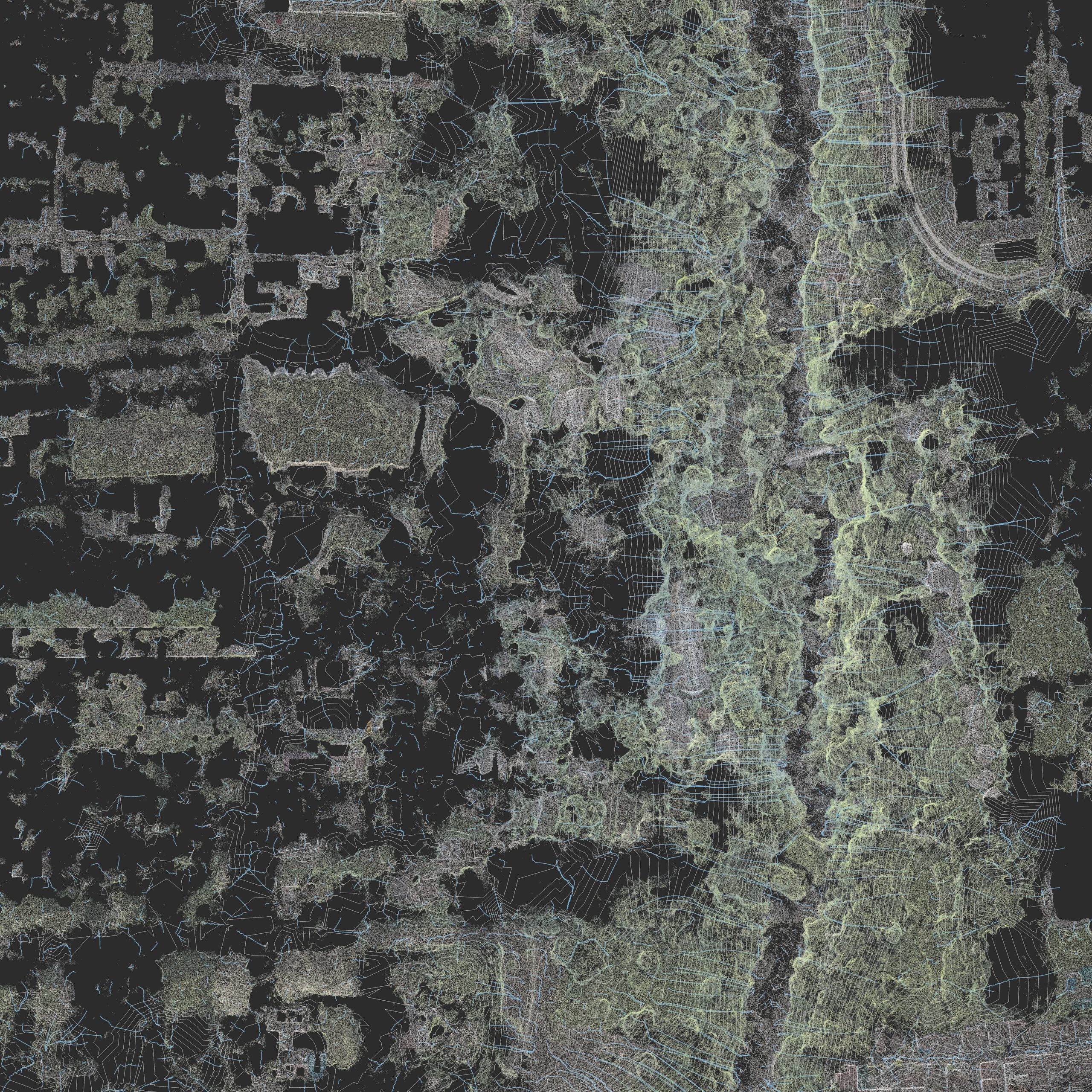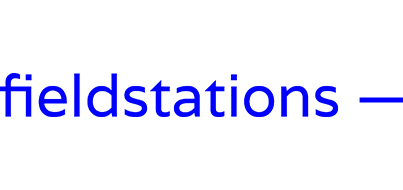SUBAK SYNTAX – JAMES MELSOM
James Melsom’s talk “Subak Syntax” introduces the ongoing research case of the platform LANDSKIP and academic investigation into the logics of the hydraulic infrastructures of Bali, Indonesia. LANDSKIP Lab’s projects often emerge from combining a complex landscape analysis or design task with collecting and generating site data in data-poor environments. The subak system threads hydrology management through agricultural and village typologies, merging drainage with ecologies and belief systems. Within this local 80-hectare subak neighbouring the village of Abiansemal, the agro-tourism organization Astungkara Way is also testing alternative methods of agriculture that reduce dependence on water, fertilizer and pesticides, yet work with lack of critical landscape and environmental data.
Through machine learning analysis of these complex systems, LANDSKIP developed hydrological models based on highly detailed point cloud scans and systems analysis. When combined with local insights into the area’s ecology and culture, facilitated through exchanges with local users and through the university, the resulting system models are a means of extrapolating the territorial scale of the subak systems. The talk shall introduce the various mechanisms – digital and analogue – through which knowledge and spatial transformation exchanges may be transferred, from the local scale to the territorial. The research will be published in part in an upcoming book by Routledge.
James Melsom is an academic, spatial researcher and practising Landscape Architect BSLA, specialised in landscape fieldwork, sensing and analysis. As co-founder of the research laboratory LANDSKIP with Ilmar Hurkxkens he has worked throughout the world on landscape scanning, research, analysis and transformation projects. Since 2019 he is Senior Lecturer in Landscape Architecture at the UTS Sydney, working in teaching, research and funded industry projects. From 2007 to 2017 he worked as a research scientist and teacher at the Institute of Landscape Architecture, ETH Zurich, grounding the ETHZ LVML in 2010 with Prof. Girot and Prof. Gret-Regamey. In early 2024 he accepted a position in the development of digital planning methods at the firm UNIOLA AG Zurich, a spatial design office based in Zurich, Geneva, Munich, Stuttgart and Berlin.
LANDSKIP Lab (AUS/NL/CH) applies its techniques and research principles to the professions of spatial analysis and design, resulting in novel approaches to the challenges faced in dynamic landscape systems. They have worked with design offices, engineers, local government departments and universities on diverse scales, sites and contexts throughout the world. Their work has been featured in magazines, journal articles and book chapters as well as events such as the Venice Architecture Biennial, the Istanbul Design Biennial and the UAAB Biennial Shenzhen/Hong Kong.

Image from Subak Syntax: Decoding the hydrological socio-agricultural systems of the Bali Subak Typology by James Melsom, 2023
The lecture wiill happen online on Thursday 23/05 at 18h CET, please register here: https://events.teams.microsoft.com/event/34468fe9-56a5-4577-91c3-a363d6e9f7da@3973589b-9e40-4eb5-800e-b0b6383d1621
The lecture series is moderated and curated by prof. Corneel Cannaerts, Fieldstation Studio Ghent, KU Leuven Faculty of Architecture



